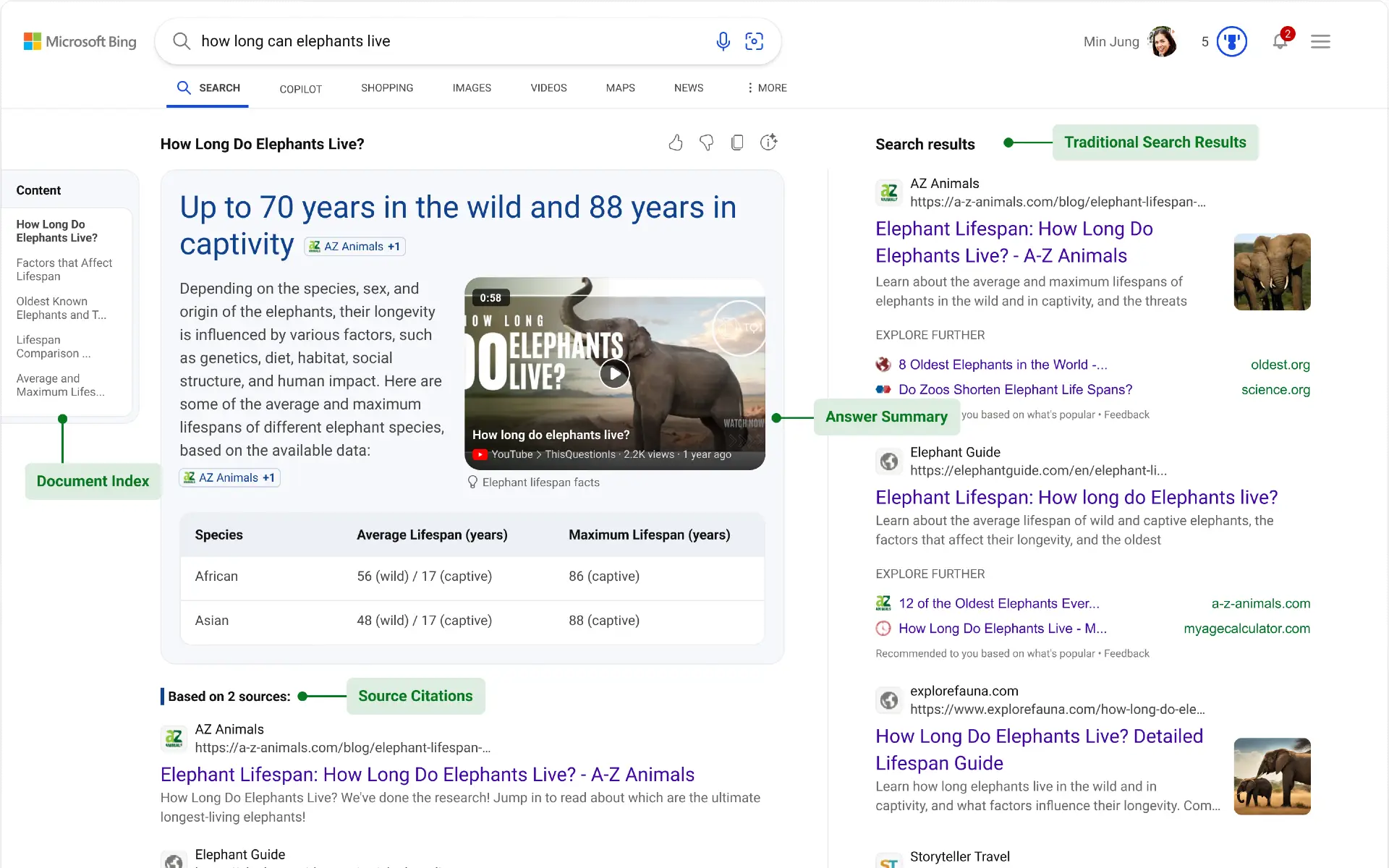Bing unveils GSE powered by AI
Microsoft's Bing introduces a new generative search experience, combining AI-powered chat answers with traditional search results.

Microsoft's Bing this week introduced a new generative search experience, currently available to a limited number of users. Announced on July 24, 2024, this innovative feature harnesses the power of large language models (LLMs) and generative AI to provide users with a more dynamic and tailored response to their queries, according to Microsoft.
Bing, a search engine trusted by hundreds of millions of users worldwide, has been working diligently on revolutionizing search since the introduction of LLM-powered chat answers in February 2023. The new generative search experience aims to enhance the way users find information, get answers to questions, and explore their curiosity.
When a user enters a query, such as "What is a spaghetti western?", Bing's generative search creates a customized AI-generated response that delves into the topic, providing a comprehensive overview of the film subgenre, its history, origins, and notable examples. The information is presented in an easily readable format, accompanied by links and sources that allow users to further explore the topic or verify the information's credibility.
According to Microsoft, the new experience is built upon the foundation of Bing's search results, combining them with the capabilities of both large and small language models (LLMs and SLMs). The system analyzes the search query, scans millions of information sources, dynamically matches content, and generates search results in a novel AI-generated layout designed to more effectively fulfill the user's intent.
Microsoft has refined its methods to optimize accuracy in Bing, applying insights gained from the introduction of LLM-powered chat answers in February 2023. The company is closely monitoring the impact of generative search on traffic to publishers, with early data suggesting that the new experience maintains the number of clicks to websites and supports a healthy web ecosystem. The generative search experience is designed with this in mind, retaining traditional search results and increasing the number of clickable links, such as references within the results.
The technical details behind Bing's generative search involve a complex interplay of AI technologies. LLMs, which are AI models trained on vast amounts of text data, enable the system to understand and generate human-like text based on the input provided. SLMs, on the other hand, are more specialized models that focus on specific tasks or domains. By combining these two types of language models, Bing can generate highly relevant and informative responses to a wide range of user queries.
To ensure the accuracy and reliability of the generated content, Microsoft has implemented various techniques, such as cross-referencing multiple sources, fact-checking, and filtering out potentially misleading or harmful information. The company has also put in place safeguards to prevent the AI from generating biased, offensive, or inappropriate content.
The rollout of Bing's generative search experience is being conducted gradually, with Microsoft emphasizing the importance of user feedback in shaping the future of this technology. Users can provide their opinions by using the thumbs up and thumbs down icons at the top of the generative search results or by clicking the Feedback icon at the bottom of the search results page.
As the technology behind generative search continues to evolve, it has the potential to revolutionize the way we interact with search engines and access information online. Microsoft's Bing is at the forefront of this development, paving the way for a more intuitive, efficient, and personalized search experience.
Key facts
Bing introduces generative search experience on July 24, 2024
Combines AI-powered chat answers with traditional search results
Utilizes large language models (LLMs) and small language models (SLMs)
AI generates customized responses based on user queries
Provides comprehensive information with links and sources for further exploration
Designed to maintain clicks to websites and support a healthy web ecosyste
Gradual rollout with emphasis on user feedback for future improvements

